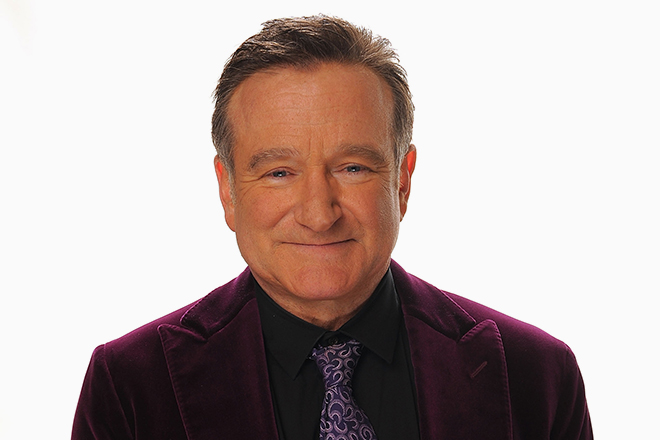It has been a little over two years since Robin Williams committed suicide. What was thought was Parkinson’s disease, it was discovered the actor and comedian was suffering from Lewy body dementia and the pain and frustration became so severe that he took his own life.
Williams’ widow, Susan Schneider, wrote a very heartbreaking essay for the medical journal Neurology titled “The Terrorist Inside My Husband’s Brain.” In it, she details the relative hell Williams suffered in the months before his suicide.
Schneider detailed that Williams began feeling symptoms in October 2013. While no one, not even doctors, knew what exactly was going on, Williams’ symptoms “seemed to come and go at random times” but they “increased in frequency and severity over the next 10 months.”
By the end of 2013/start of 2014, Williams began suffering from paranoia and delusions. Plus he was starting to lose his memory. One of the most heartbreaking things in the essay was detailing Williams’ memory loss as it affected his acting and the frustration that came about as a result.
“During the filming of [Night at the Museum 3], Robin was having trouble remembering even one line for his scenes, while just 3 years prior he had played in a full 5-month season of the Broadway production Bengal Tiger at the Baghdad Zoo, often doing two shows a day with hundreds of lines—and not one mistake. This loss of memory and inability to control his anxiety was devastating to him.”
After being misdiagnosed with Parkinson’s in May, Schneider felt that Williams wasn’t quite sure that was what he had. After some positive moments throughout the summer, Schneider noted that Williams was growing weaker and weaker.
“His left hand tremor was continuous now and he had a slow, shuffling gait. He hated that he could not find the words he wanted in conversations. He would thrash at night and still had terrible insomnia. At times, he would find himself stuck in a frozen stance, unable to move, and frustrated when he came out of it. He was beginning to have trouble with visual and spatial abilities in the way of judging distance and depth. His loss of basic reasoning just added to his growing confusion.”
In the days before Williams’ death, Schneider thought that he was feeling a bit better and they had one final weekend together.
As the second weekend in August approached, it seemed his delusional looping was calming down. Maybe the switch in medications was working. We did all the things we love on Saturday day and into the evening, it was perfect—like one long date. By the end of Sunday, I was feeling that he was getting better.
When we retired for sleep, in our customary way, my husband said to me, “Goodnight, my love,” and waited for my familiar reply: “Goodnight, my love.”
His words still echo through my heart today.
Monday, August 11, Robin was gone.
After Williams’ death, Schneider went out to learn more about Lewy body dementia and other brain diseases. She is now on the Board of Directors for the American Brain Foundation.
Many people still have the belief that when someone commits suicide, they are somehow a coward or they’re taking the easy way out or are only thinking of themselves and never think about those close to them and how they would feel. Unless you have had suicidal thoughts or have dealt with someone close who has, you have no right to judge.
While each case of suicide or attempted suicide may be different, they share the similarity that it was a decision by someone who for their own personal reasons, felt they were in a very bad place and felt there was simply no hope left. And the stigma attached to suicide and mental illness by those who fail to understand only makes things worse.
What Robin Williams suffered was hell. He suffered from a debilitating brain disease that has no cure and was inevitably going to wear him down so much that it would take everything mentally and physically away from him and then kill him. It’s easy to think that you would never kill yourself when you are healthy. But if you were to be put in Robin Williams’ situation and suffered what he suffered, it doesn’t become an easy decision anymore. I’m sure Susan Schneider wanted to spend some more time with her husband before the disease completely took him and I’m sure she felt the same emotions anyone has when a loved one dies. But she at least understood why Robin Williams did what he did and to her, Robin Williams bravely fought the disease all the way to the end.
[Neurology/Photo: Michael Caufield/Getty Images]







